

TURNING

The Sanguatsiniq research project focuses on food security, economic change, cultural practices and values, and well-being in two Inuit communities in the Canadian Arctic, Kangiqsujuaq and Ulukhaktok (left). The project name refers to turning when traveling. For our community partners, the concept is a metaphor for having new ideas, with traveling set in contrast to being “stuck in one place,” which is how Inuit often describe stressful experiences.
The project focus has emerged through extensive consultation and long-term collaboration and participant observation with the study communities, and combines longitudinal observational studies with community programming. Our theoretical aim is to develop new approaches to understanding processes of cultural adaptation and determinants of well-being in populations experiencing social and economic upheaval, including those related to climate change. What processes—economic, social, and psychological—promote stability or change in cultural beliefs and practices? When, and why, is cultural change a stressful process? We are particularly interested in how risk and uncertainty shape trajectories of cultural change and people’s experiences of it.
RECENT ACTIVITY
Understanding the structure of sharing networks
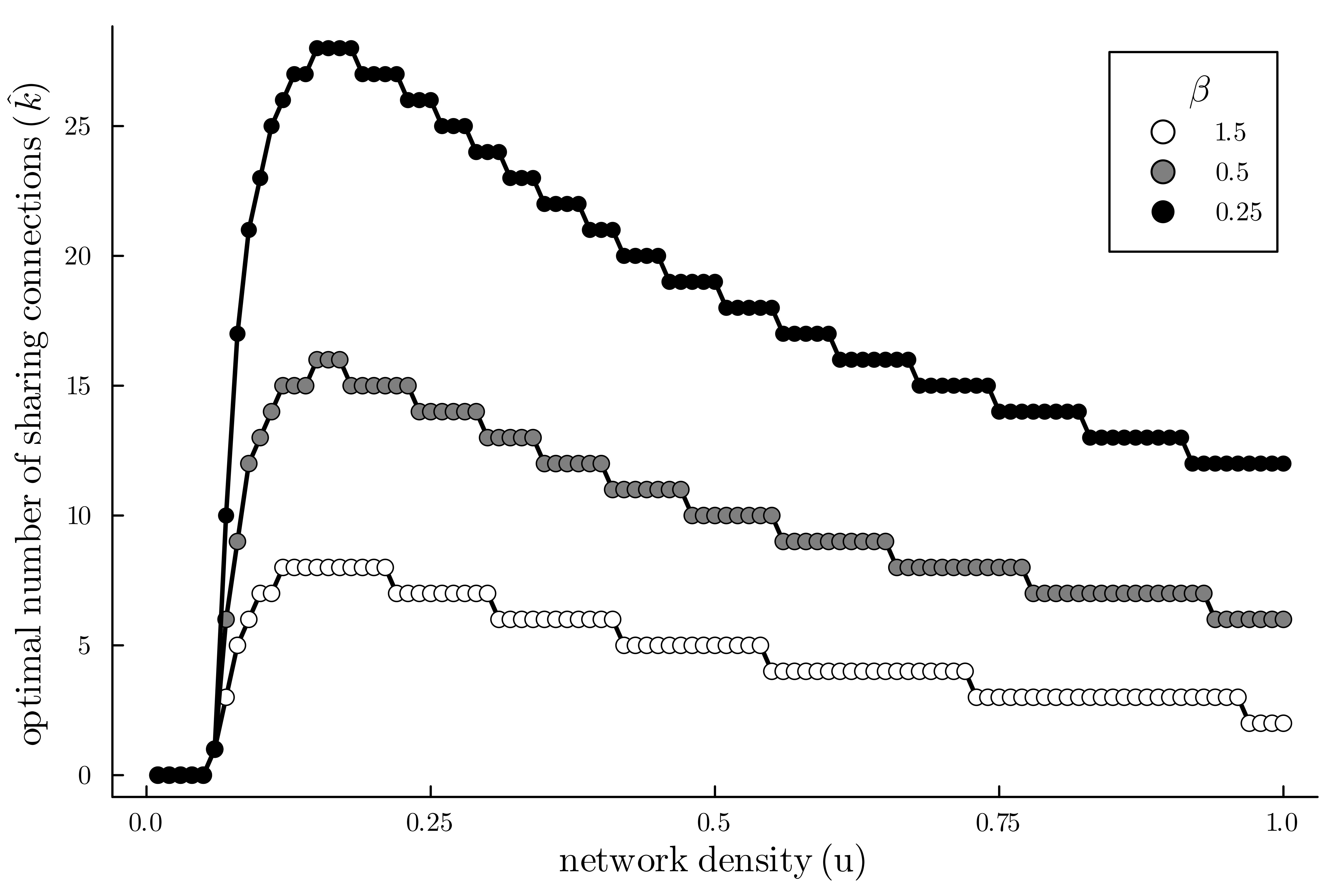
In a new preprint, Pérez Velilla and Ready (2026) investigate how generous behaviours, like food sharing, can be stabilized in a network. We develop a theoretical model that shows that realistic sharing networks can emerge out of reputational incentives (such as those borne out of widely-accepted sharing norms) and the structure of underlying communication networks in a community.
When gifts are "repaid" by receivers in signals of the giver's generosity, moderately sparse communication networks incentivize the most sharing, because in a sparse network sharers have to give more to reach a broad audience than in a denser network (figure above). These dynamics can also help stabilize sharing to needy households, so long as those households are sufficiently well-connected in the sharing network (result shown in figure below).
We compare our theoretical results with sharing network data from Kangiqsujuaq, showing that the mechanism we propose can account for several aspects of network structure, while also demonstrating that mechanisms generating direct reciprocity cannot be ignored.
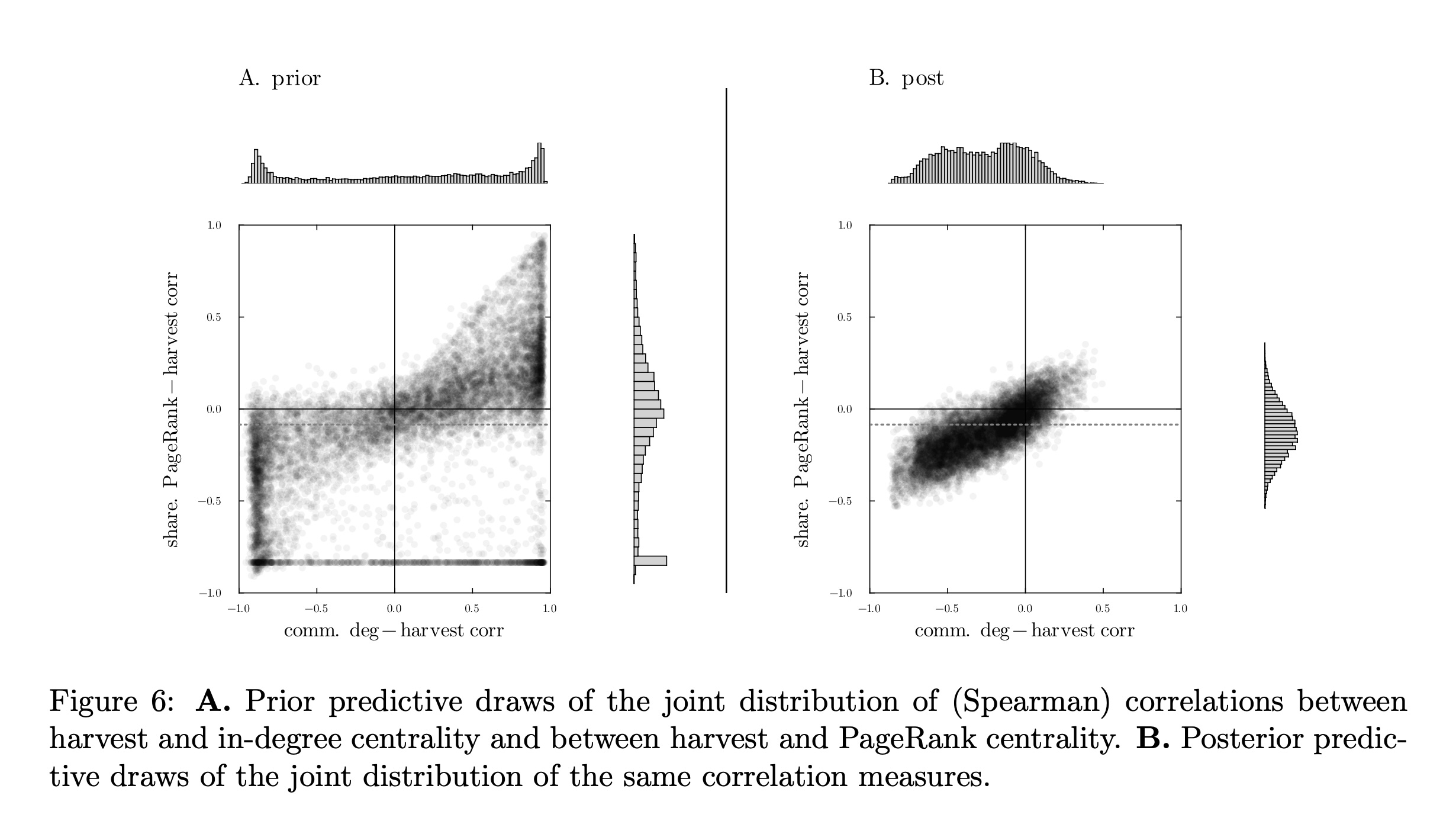
GROUP MEMBERS
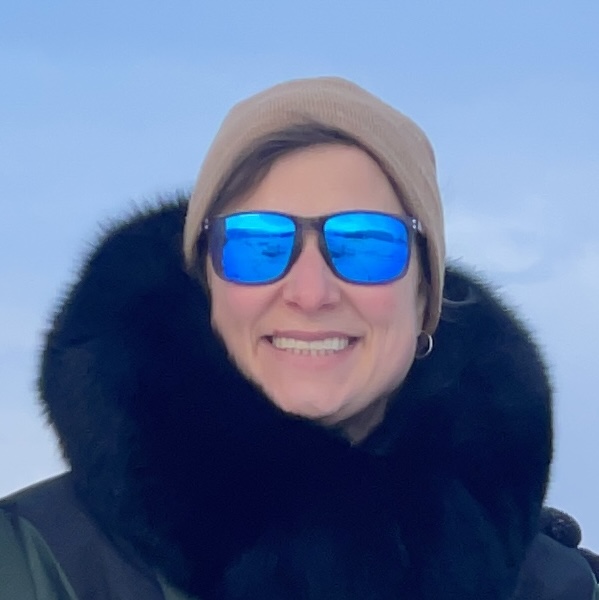
Elspeth Ready
Co-PI, MPI-EVA

Peter Collings
Co-PI, University of Florida
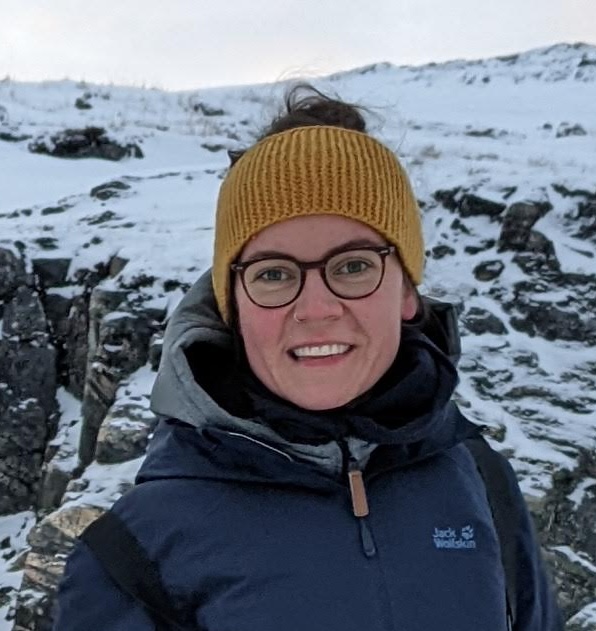
Friederike Hillemann
Post-doc, Durham University
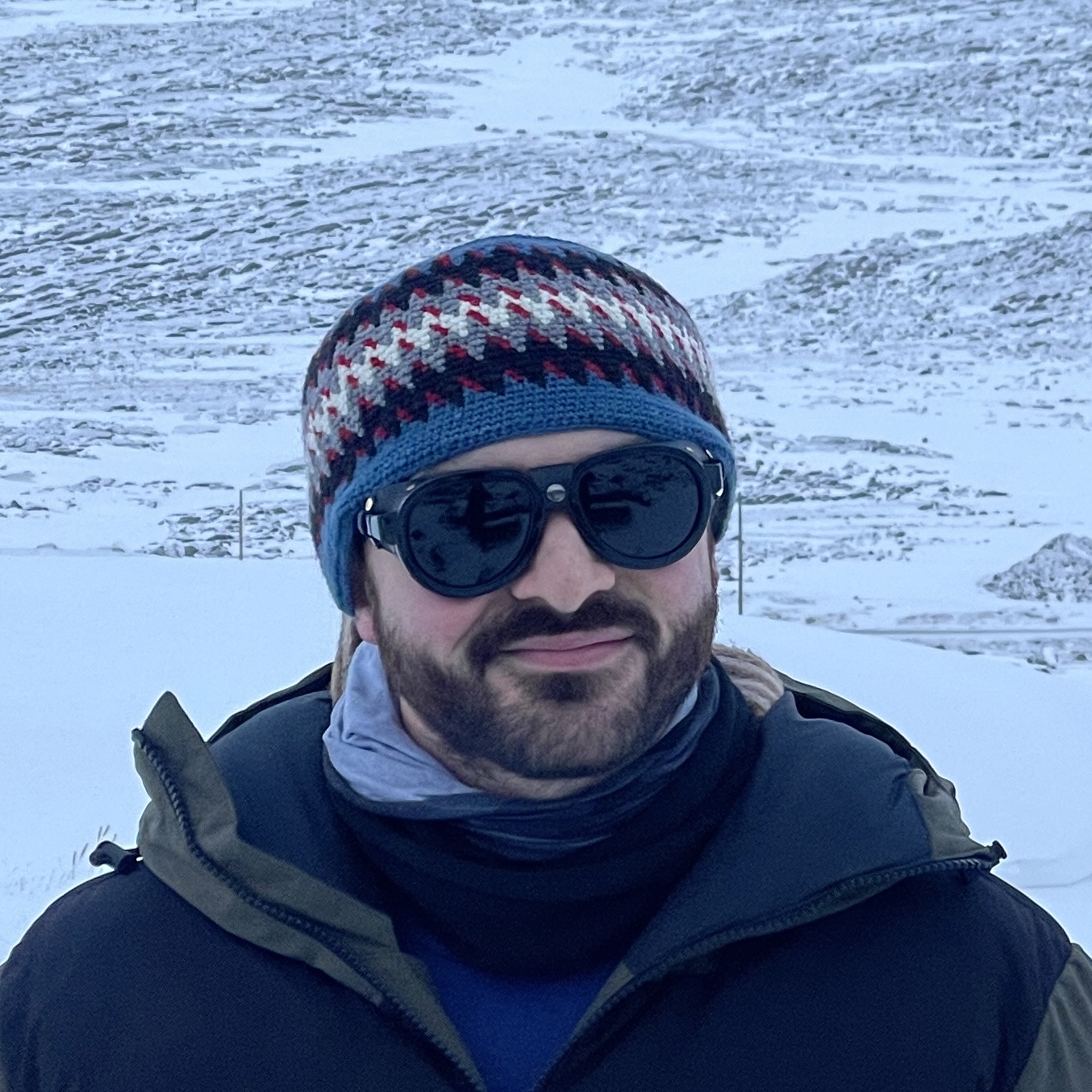
Alejandro Pérez Velilla
PhD student, UC Merced

Sofia Eriksen
PhD student, MPI-EVA
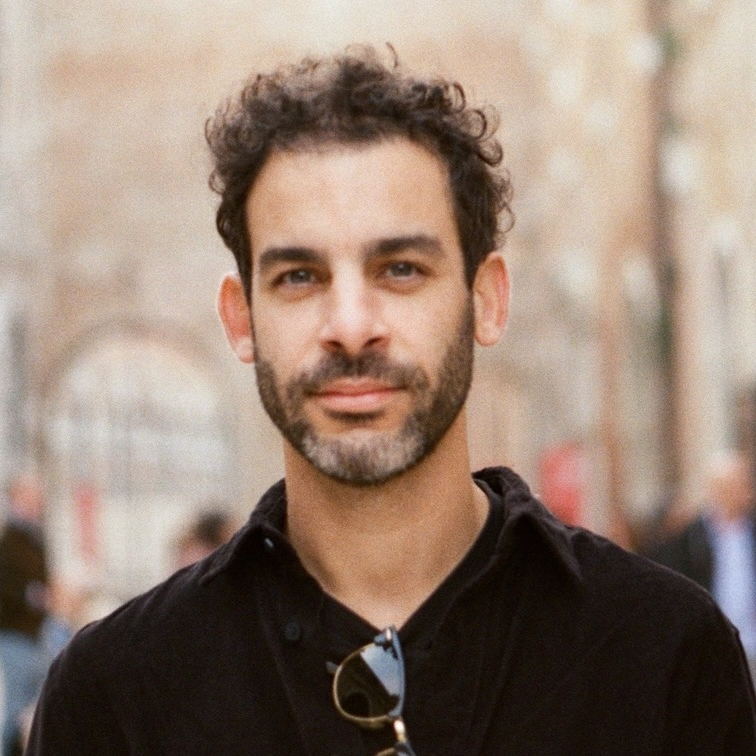
Alberto Buela Acevedo
PhD student, U. Vienna
COMMUNITY AND POLICY REPORTS
Community and policy reports
A 2025 research summary for community members in Inuktitut and English.
2024 interim project reports on food security and food sharing.
2023 summary report about Inuit stress management strategies, in Inuktitut.
2021 report for the Inuvialuit Regional Council on the potential impacts of Canadian carbon pricing on the hunting, fishing, and trapping economy.
A summary of our 2019 pilot study on community health and wellness can be found here.
A more detailed report for the community concerning subsistence and food security from 2018 can be downloaded here. The results of this report were used by the Kangiqsujuaq community council to develop a program to support young families to go hunting together.
A 2015 summary report of results from Ready's dissertation fieldwork, in Inuktitut and English, is available here. This work led to the publication of a policy report on food security in Nunavik.
Academic articles
Collings, P. and Ready, E. 2025. "I'd say, ‘smoke a little weed, you'll feel better:’" Ethnographic observations of cannabis use in the Canadian Arctic. Social Science and Medicine: Mental Health.
Ready, E., Ross, C.T., Beheim, B. and Parrott, J. 2024. Indigenous food production in a carbon economy. PNAS 121 (32) e2317686121.
Hillemann, F., Beheim, B. and Ready, E. 2023. Socio-economic predictors of Inuit hunting
choices and their implications for climate change adaptation. Philosophical Transactions of the Royal Society B.
Collings, P., Ready, E., and Medina-Ramírez, O., 2023. An ethnographic
model of stress and stress management in two Canadian Inuit communities. Journal of Cross-Cultural Psychology.
Ready, E., 2022. Ilagiit, parts of each other: Scale and Inuit social relations. In Scale Matters: The Quality of Quantity in Human Social Relationships. T. Widlok and M. Dores Cruz, editors. Transcript Verlag.
Jones, J.H., Ready, E. and Pisor, A.C. 2021. Want climate-change adaptation? Evolutionary theory can help. American Journal of Human Biology.
Ready, E. and Collings, P. 2021. “All the problems in the community are multifaceted and related to each other”: Inuit concerns in an era of climate change. American Journal of Human Biology.
Ready, E. and Power, E.A. 2021. Measuring reciprocity; Double sampling, concordance, and network construction. Network Science.
Ready, E. and Price, M.H. 2021. Human behavioral ecology and niche construction. Evolutionary Anthropology.
OPEN SCIENCE
Code repositories
For papers prior to 2021, see here. For more recent papers, check out our project github page.
Project data
Based on consultation with community leaders, our current practice is for all project results and publications to be open access, with access to project data subject to a data use agreement, which depending on the intended use may require additional community consultation. Requests for educational uses involving Inuit students will be prioritized. Please send requests to Elspeth Ready. Where possible, recent papers provide simulated datasets for the purposes of replication.